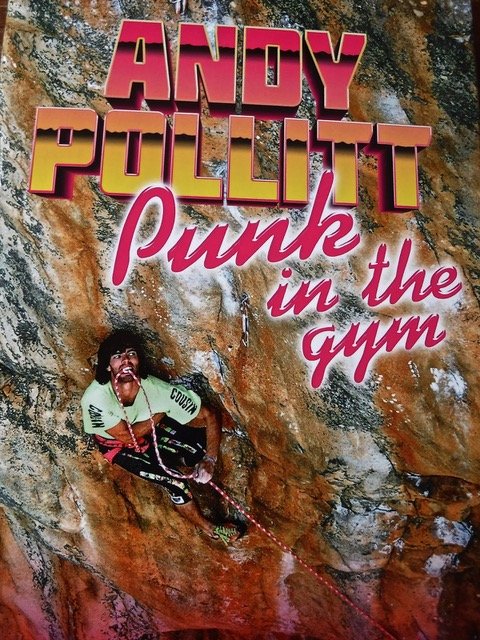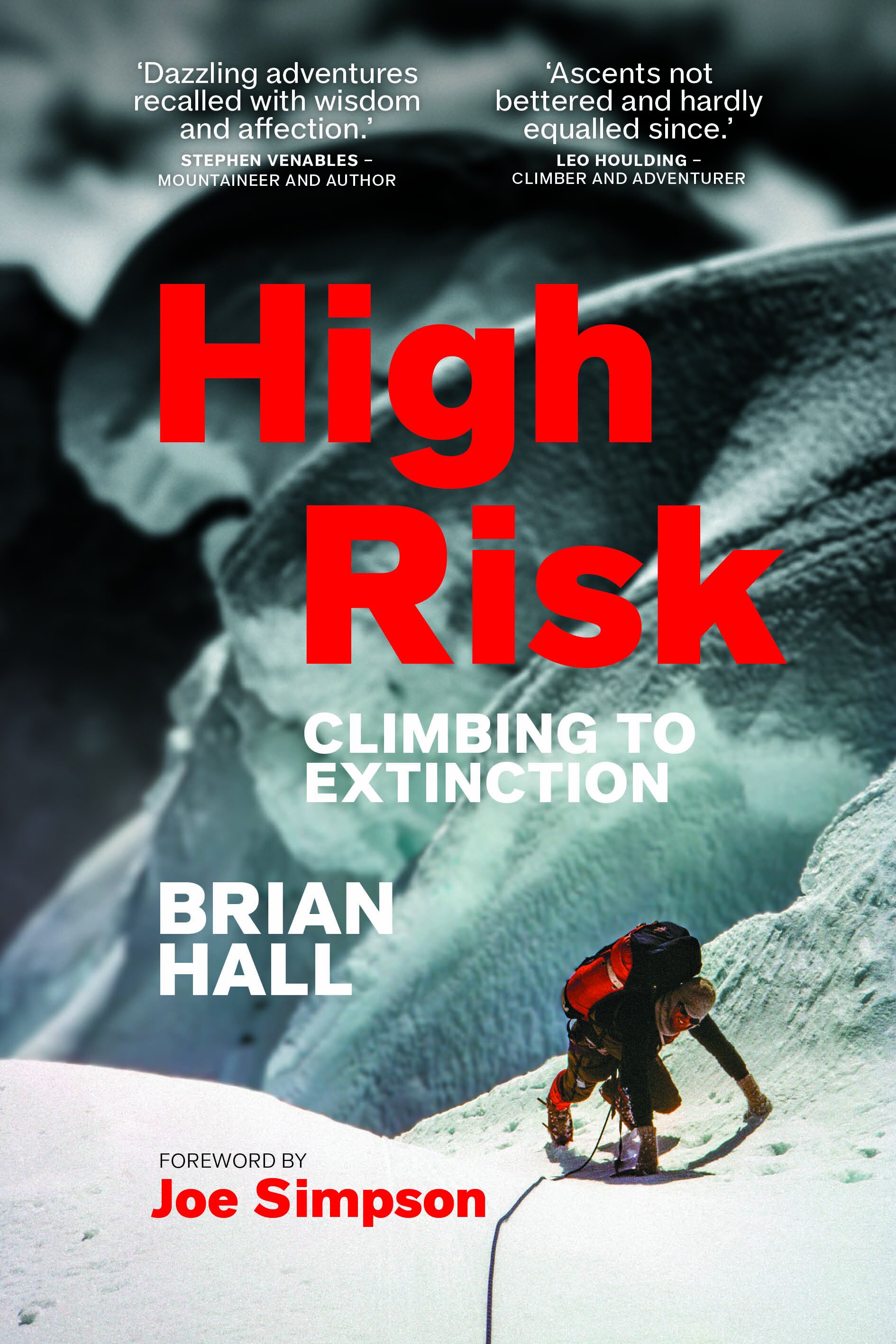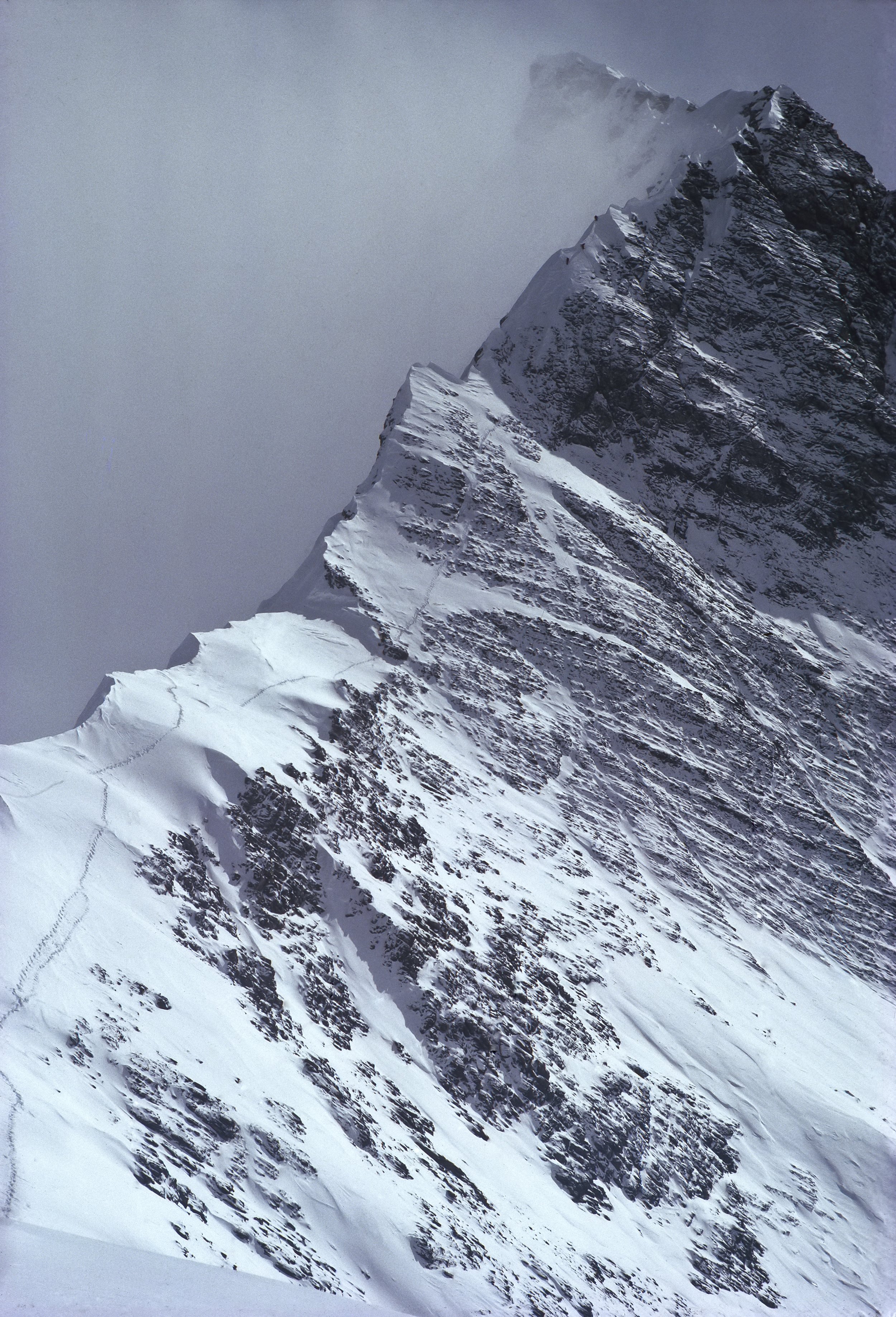Sacred Summits describes a year in the life of Peter Boardman, a 29-year-old high-altitude mountaineer, and the mind-boggling commitment needed to succeed on the tightrope between life and death at the elite level of mountaineering. During the latter part of 1978 and most of 1979 Pete took part in three major expeditions whilst juggling with the duties of the B.M.C. and the British Mountain Guides Association, the attractions of a blossoming relationship and the impending death of his father. What drives expeditioners to constantly battle through barriers of officialdom and bureaucratic nonsense, keep on climbing when utterly exhausted, or braving unjustifiable leads and treacherous conditions when turning back is the only sensible option?
Although a “hard man” mountaineer, Pete was known to have a very gentle and romantic nature that seemed at odds with his chosen profession. However, it might not initially have seemed that way to Pete’s girlfriend, Hilary, who joined him on the first expedition of that year. As the highest mountain between the Andes and the Himalaya, the Carstenz Pyramid in Western New Guinea is regarded by many as one of the Seven Summits. Just getting into the interior of New Guinea demanded a certain unflinching naïve hope when refused access on multiple occasions as they “plane hopped” around the island looking for a breach in the bureaucratic maze. Eventually a pilot of the Seventh Day Adventists took pity on them and flew Pete and Hilary into a Stone Age world where a priest helped them to organise porters and gave the rudimentary communication skills needed to talk to them.
Just crossing the jungle to their eventual base camp, was a marathon of pain. The relentless bad weather, the chossy rock and unstable ice, and with Hilary to rely on as a climbing partner, all provided a recipe for potential disaster. Yet they never questioned their journey. Those were the invincible times of youth forged from Pete’s great physical strength and skill. Hilary trusted him implicitly and literally followed him to what seemed like the end of the Earth to eventually climb the South Face to the summit. The return journey back to civilisation had the dream-like quality that comes with being “in love”. As Pete wrote, “we came out of the highland on an upper floor, sharing an eternal secret.”
The second expedition was the remarkable ascent of Kangchenjunga by Pete, Joe Tasker, Doug Scott and Georges Bettembourg. It was only the third ascent since first climbed in 1955, but notably by a new route with limited Sherpa support and no supplemental oxygen. This climb, along with the exploits of Messner and Habeler, marked a turning point away from the huge siege style Himalayan expeditions. Pete’s account is rich in believable dialogue, literary references and historical asides which bring to life his climbing companions and the drudgery of attempting such a big mountain.
He also hints at the developing relationship with Joe Tasker. Most “of our conversation was spent mocking and deflating each other. Joe was best at this, making tight-lipped remarks like gunshot, but out of many past altercations a lot of respect and trust seemed to have grown, and neither suspected malice anymore.”
Pete is equally insightful about Doug Scott’s “home-baked psychological musings. He’s either undergoing a second adolescence or he’s in touch with something beyond the range of all the rest of us. He has a clever knack of self-parody and a ready laugh that makes it difficult to sense his level of seriousness.”
Gauri Sankar in Nepal was the next objective. The North summit had already been climbed in the spring of 1979 but the South summit, considered the most holy mountain of the Sherpas, had not been climbed before. A technically difficult and beautiful mountain, it is known as the Eiger of the Himalaya.
Attempting a second Himalayan peak in the same year, Pete felt like he might be pushing his limits. He was also feeling very torn emotionally as, just before leaving, he had learned that his father was terminally ill and so he was unsure if he would see him again. It was only after meeting up with Tim Leach, John Barry and Guy Neidhardt that he began to feel infected by the energy and enthusiasm of climbers new to the Himalaya. Pemba Sherpa completed the climbing team on their arrival in Kathmandu.
Pete’s beautiful prose describes the expedition’s long journey up the Bhote Kosi River with amusing cameos of the diverse characters getting to know each other. At Base Camp all had a profound respect for the Sherpas’ puja ceremony enacted for the safety of the expedition before the real climbing started. With minimal equipment and an unwillingness to return to Base Camp it was a nerve-wracking journey along the precarious fluted ridge of rock and cornices, from one perched camp to the next. A fall by John almost ended the expedition, “He’s fallen. The rope’ll never hold… He’s pulling me off the anchor, the rope’ll snap, I’ll go too.”
Relentless, dangerous climbing overwhelmed Pete at times, to the point of thinking; “Death was too near for me to resign myself to the risk. It was an absolute necessity that I should survive and return.” The journey to the summit and the descent back to base camp, were increasingly gripping as the team barely survived. “We were worn out cars running on empty.” It took Pete and his team an arduous 23 days at the limits of endurance to climb Gauri.
In Kathmandu, Pete brooded as anxiety about his father grew, “Will he die whilst I am away?” Back in the UK, Pete went immediately to his parents’ house. He had four evenings with his father before he passed away. During that time he felt the close bond of love and support of family and friends, for his mother and brother. His father, accepting of his death, said to Pete “… this love is what will endure and be everlasting.”
Pete realised, “there was no need to try to fight death off, by shrinking from the fact and acting as if it did not exist… I had learnt about motion, but now had much to learn about stillness… I was calm.”
On a reflective note, Hilary writes:
I believe Pete faced his own death on the NNE Ridge of Everest with the same equanimity. On the very last page of Sacred Summits, unknowingly, he left a message for those who loved him, “Life could not be trusted unless peace was made with death; until life’s impermanence and imperfection was accepted, and that acceptance allowed to heal.”
In Pete’s Alpine Journal obituary, Charles Clarke asserts that Sacred Summits (published shortly after Pete’s death) “captured both the variety and intensity of three very different expeditions and which will, I believe, be held in years to come, among the greatest of climbing literature, for its merit rather than for its author's untimely end. “
































